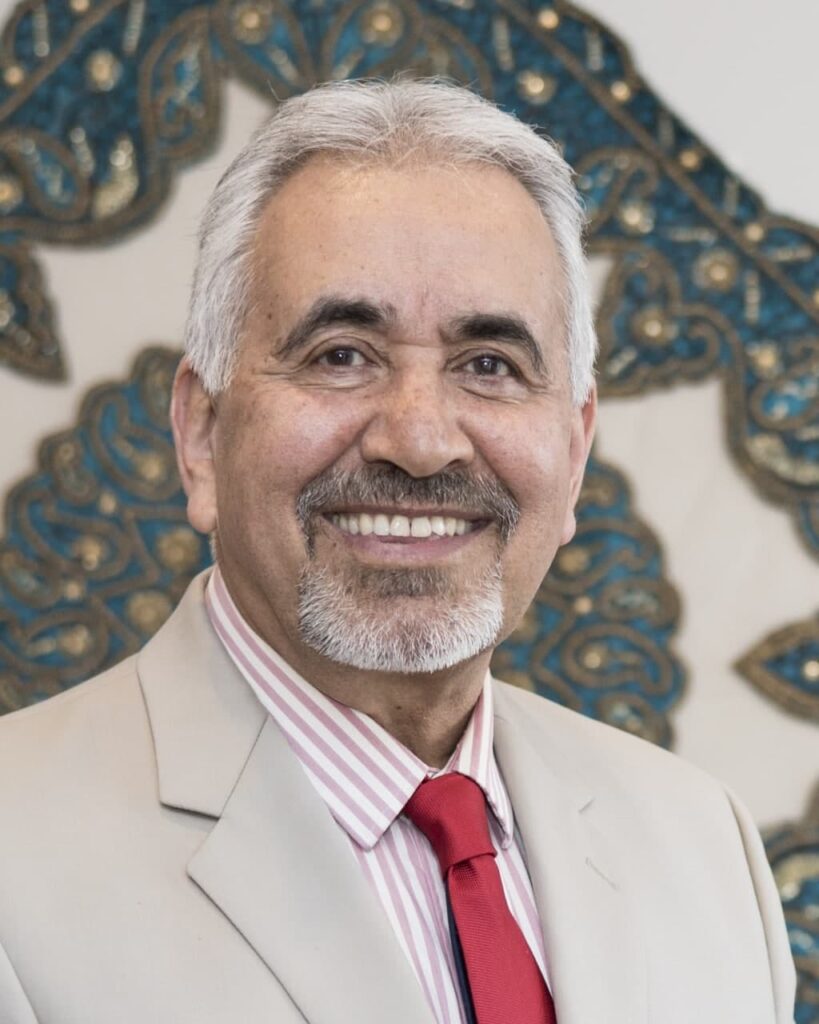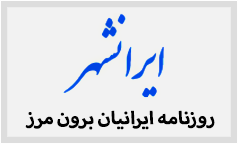
دکتر محمود مسائلی :
محترم، خانم الیان تیلیو، رئیس نمایندگان نمایندگان پارلمان بلژیک
من محمود مسائلی، شهروند کانادایی-ایرانی، عضو جامعه مدنی جهانی، و استاد بازنشسته حقوق و روابط بینالملل، مایلم نگرانی عمیق خود را در مورد پیشنویس معاهده مبادله زندانیان ایران و بلژیک ابراز نمایم. مجلس نمایندگان باید به دلایل زیر از تصویب این پیش نویس خودداری کند:
- بلژیک مقاوله نامه بینالمللی سرکوب بمبگذاری تروریستی مصوب مجمع عمومی سازمان ملل متحد در سال ١٩٩٧ را که از ٢٣ ماه مه ٢٠٠١ قوت اجرایی پیدا کرده است، را امضا و تصویب قانونگذاری داخلی خود رسانده است. در ٢۸ ژانویه ٢٠٠۸، دولت بلژیک به دبیر کل سازمان ملل متحد اطلاع داد که حق شرط خود در رابطه با ماده ١١ مقاوله نامه مذکور پس می گیرد. این بدان معنی است که بلژیک متعهد است که جرایم ذکر شده در ماده ٢ مقاوله نامه مذکور را با مجازات هایی که متناسب با ماهیت سنگین آن جنایت ها است را در نظر گرفته و مجازات کند (ماده ۴). علاوه بر این، ماده ۵ مقاوله نامه مذکور کشورهای عضو را ملزم میسازد هر گونه تدابیر لازم را اتخاذ کنند تا اطمینان حاصل شود که اعمال جنایتکارانه تصریح شده در مقاوله نامه، اجرا شوند. با توجه به این وظایف، بلژیک نمی تواند تعهدات معاهداتی خود را که ناشی از آن مقاوله نامه بین المللی است نادیده بگیرد.
- بلژیک باید با دقت کافی به اصل “تعهدات برای همه” افراد جامعه جهانی که از مقاوله نامه مذکور احترام بگذارد. در قضیه مربوط به تعهد به مجازات و یا استرداد (بلژیک علیه سنگال، ٢٠١٢)، دادگاه بینالمللی دادگستری به روشنی بیان داشت که اینگونه تعهدات، یعنی تعهداتی که در قبال تمام کشورهای عضو نافذ می باشد، باید رعایت شود. بنابراین دادگاه دریافت که ادعاهای بلژیک علیه سنگال بر اساس آن مفاد آن “تعهدات برای همه ” قابل قبول بوده و دادگاه براساس آن می تواند قضیه را در حیطه صلاحیت خود مورد بررسی قرار دهد.
- حال بسیار تعجب آور است که بلژیک قصد دارد “تعهدات برای همه” که توسط دادگاه بین المللی دادگستری تایید شده است را نادیده بگیرد. این موضع بلژیک در قبال تعهدات بین المللی خود، برای اعضای جامعه مدنی، و به ویژه کسانی که از جنایت تروریسم رنج می برند، غیرقابل درک است.
- در چندین قضیه دیگر(پرونده شرکت برق بارسلونا؛ پرونده تیمور شرقی؛ پیامدهای قانونی برای وضعیت حضور مستمر آفریقای جنوبی در نامیبیا؛ پیامدهای حقوقی ساخت دیوار در سرزمین فلسطین اشغالی؛ جمهوری دموکراتیک کنگو علیه رواندا؛ و پرونده گامبیا علیه میانمار) دادگاه دادگستری بین المللی تایید کرده است که کشورها باید به “تعهدات برای همه” افراد منافع جامعه جهانی، پایبند باشند. اینها تعهداتی است که هیچ گونه انحرافی از آنها مجاز نیست. اینکه بلژیک با تهیه پیش نویس معاهده مبادله زندانیان، قصد دارد تعهدات خود در قبال همه جامعه بین المللی را نادیده بگیرد، دلسرد کننده است.
- این تعهدات نه تنها توسط استدلال های علمی و رویه دادگاه بین المللی دادگستری، بلکه توسط کمیسیون حقوق بین الملل سازمان ملل متحد پذیرفته شده است. کمیسیون مذکور با کار بر روی اقدامات و رفتارهای غیرقانونی بین المللی دولت ها، به روشنی بیان داشته است که چنین اقداماتی در برگیرنده مسئولیت بین المللی آن دولت ها می باشد. کمیسیون مسئولیت های ناشی از تعهدات معاهداتی را از “تعهدات در قبال همه” افراد جامعه جهانی متمایز می کند. به گفته کمیسیون، هر کشوری به دلیل عضویت خود در جامعه بین المللی، در حمایت از برخی حقوق اساسی، تعهداتی غیرقابل تردید دارد. علاوه بر این، “تعهدات در قبال همه” افراد جامعه جهانی، نشان می دهد که جامعه بینالمللی نمی تواند اقدامات نادرستی که موجب آسیب به ارزشها و منافع جامعه بینالمللی میشود، را تحمل نماید. اگر این پیش نویس معاهده ایران و بلژیک برای مبادله زندانی توسط مجلس نمایندگان تصویب شود، نشان دهنده قصور بلژیک در به عهده گرفت تعهد خود در قبال کسانی است که از جنایت تروریسم رنج می برند.
- اصل حقوقی بین الملل “اهتمام لازم” نیز اهمیت دارد. بند ٢ از بخش اول مقدمه منشور ملل متحد خاطر نشان می سازد که همه کشورهای عضو ایمان خود به حقوق اساسی بشر، به حیثیت و ارزش انسان، به حقوق برابر زن و مرد است، ابراز می دارند. و ماده 2-2 منشور مقرر می دارد: “کلیه اعضا به منظور تضمین حقوق و مزایای ناشی از عضویت برای همه آنها باید تعهداتی را که طبق این منشور بر عهده گرفته اند با حسن نیت انجام دهند”. بدون این اصل “اهتمام لازم”، انجام وظایف ناشی از منشور ملل متحد غیرممکن می باشد. اعلامیه جهانی حقوق بشر نیز در مواد ٢ و ٧؛ و مقاوله نامه بین المللی حقوق مدنی و سیاسی در مواد ٢ و ٢۶، اهمیت اصل “اهتمام لازم” در اجرای تعهدات دولت ها را تأیید می کند. علاوه بر این، دادگاه بین المللی دادگستری در پرونده کانال کورفو و همچنین شرایط پذیرش یک کشور برای عضویت در پرونده سازمان ملل متحد، اصل “اهتمام لازم” را به عنوان نشانه حسن نیت دولت ها در انجام تعهدات بین المللی خود دانسته است.
به طور خلاصه، بلژیک باید تعهد ثابت خود را نه تنها نسبت به قواعد حقوق بینالملل و حقوق بینالمللی حقوق بشر، بلکه به ارزشها و منافع جامعه بینالمللی اعلام کند.
من در کلاسهای حقوق بشر خود در فصل پاییز و زمستان سال تحصیلی آینده، قصد دارم این نگرانی ها را برای دانشجویان توضیح دهم. امیدوارم تا آن زمان پاسخ مجلس نمایندگان را دریافت کنم.
با فروتنی و احترام
دکتر محمود مسائلی
-
آتاوا، ١٢ ژوئیه
-
٢٠٢٢بنیانگذار و دبیرکل اندیشکده بین المللی نظریه های بدیل با مقام مشورتی نزد سازمان ملل متحد
استاد کنونی مطالعات حقوق بشر ایران آکادمیا، لاهه، هلند
این نامه همچنین به افراد زیر کپی شده است:
خانم دریا صفایی، نماینده مجلس نمایندگان، بلژیک
آقای علی احساسی نماینده مجلس کانادا
اصل این نامه به انگلیسی برای رئیس مجمع نمایندگان پارلمان بلژیک ارسال شد. که همینجا میتوانید مطالعه فرمائید
Subject: Iran-Belgium Prisoner Swap Treaty
The Honourable, Ms. Éliane Tillieux, the Chairperson of the Chamber of Representatives, Belgium
I Mahmoud Masaeli, A Canadian-Iranian citizen, a member of the global civil society, and a retired professor of International Law and Relations, would like to express my deep concern regarding the draft piece on legislation on Iran-Belgium Prisoner Swap Treaty. The Chamber of Representatives must avoid passing this draft for the following reasons:
1. Belgium has signed and ratified the International Convention on the Suppression of Terrorist Bombing 1997, in effect since 23 May 2001. On the 28 January 2008, the Government of Belgium notified the Secretary-General of the United Nations of his withdrawal of the reservation in respect of article 11 made upon ratification. This means that Belgium is committed to making the offenses enumerated in Article 2 punishable by appropriate penalties that take into account their grave nature (article 4). In addition, article 5 requires States Parties to adopt any measures that may be necessary to ensure that criminal acts within the scope of the Convention, in particular where they are intended or calculated to create a state of terror, are not justifiable. In light of these duties, Belgium cannot ignore its treaty obligations arising from the Convention.2. Belgium must strictly respect erga omnes patres emanating from the said Convention. In Questions Relating to the Obligation to Prosecute or Extradite (Belgium v. Senegal, 2012), the International Court of Justice ruled out that erga omnes partes, i.e., obligations owed toward all States parties, must be respected. The Court thus found that Belgium’s claims against Senegal based on those provisions were admissible.3. It is very surprizing that Belgium plans to ignore the obligations affirmed in the said Case by the Court. This inconsistency in position of Belgium toward its international obligations is incomprehensible for members of civil society, and notably those suffering from the crime of terrorism. 4. In several cases (Barcelona Traction Light and Power Company Case; the East Timor Case; The Legal Consequences for the State of the Continued Presence of South Africa in Namibia Case; Barcelona Traction Light and Power Limited Case [Belgium v. Spain]; Legal Consequences of the Construction of a Wall in the Occupied Palestinian Territory Case; Democratic Republic of Congo v. Rwanda; and Gambia v. Myanmar case) the International Court of Justice has confirmed that States are bound by erga omnes obligations. These are the obligations toward everyone from which no derogation is permitted. It is a discouraging to see that by drafting the Prisoner Swap Treaty, Belgium is willing to ignore its obligations toward all in the international society. 5. Those obligations are not only admitted by academic reasoning and the practice of the International Court of Justice, but also by the United Nations International Law Commission (ILC). By working on internationally wrongful act of a State, ILC states that such actions entail international responsibility of that States. The Commission distinguishes the responsibilities arising from treaty obligations from the obligations toward everyone (erga omnes obligations). According to the Commission every State, by virtue of its membership in the international community, has a legal interest in the protection of certain basic rights and the fulfilment of certain essential obligations. Further, the erga omnes obligations toward all, ascertains the willingness of the international community to not tolerate the wrongful acts that cause damages to the values and interests of the international community. If the piece of draft legislation is passed by the Chamber of Representative, it will be a failure of Belgium in its commitment toward those who are suffering from the crime of terrorism.
- The Due Diligence principle matters as well. Paragraph 2 of the first section of the Preamble in UN Charter requires the member states’ faith in fundamental human rights, in the dignity and worth of the human person, in the equal rights of men and women. And article 2-2 ascertains “All Members, in order to ensure to all of them the rights and benefits resulting from membership, shall fulfill in good faith the obligations assumed by them in accordance with the present Charter”. Without this due diligence, it is impossible to undertake all duties arisen from the Charter. The Universal Declaration of Human Rights in articles 2 and 7 and the Convention on Civil and Political Rights in articles 2 and 26, confirm the importance of the due principle in fulfilling the obligations of the States. Furthermore, the International Court of Justice in The Corfu Channel Case as well as the Conditions of Admission of a State to Membership in the United Nations Case, show the due diligence as the sign of the states’ good faith in undertaking of their international obligations.
In summary, Belgium must declare its consistent commitment toward not only the rules of international law and international human rights law, but also the values and interests of the international community.
In my courses on human rights in the fall and the winter terms of 2022-23, I intend on explaining these concerns to my students. I hope that I will receive a response from the Chamber of Representative by then.
Humbly submitted
Mahmoud Masaeli, Ph.D.
Founder and Executive Director of Alternative Perspectives and Global Concerns (ap-gc.net)
Professor Human Rights, Iran Academic, The Hague
Phone: +1-613-818-4726
This letter is copied to:
Ms. Darya Safai, MP, The Chamber of Representatives, Belgium
Mr. Ali Ehssasi, MP, The Parliament of Canada




























